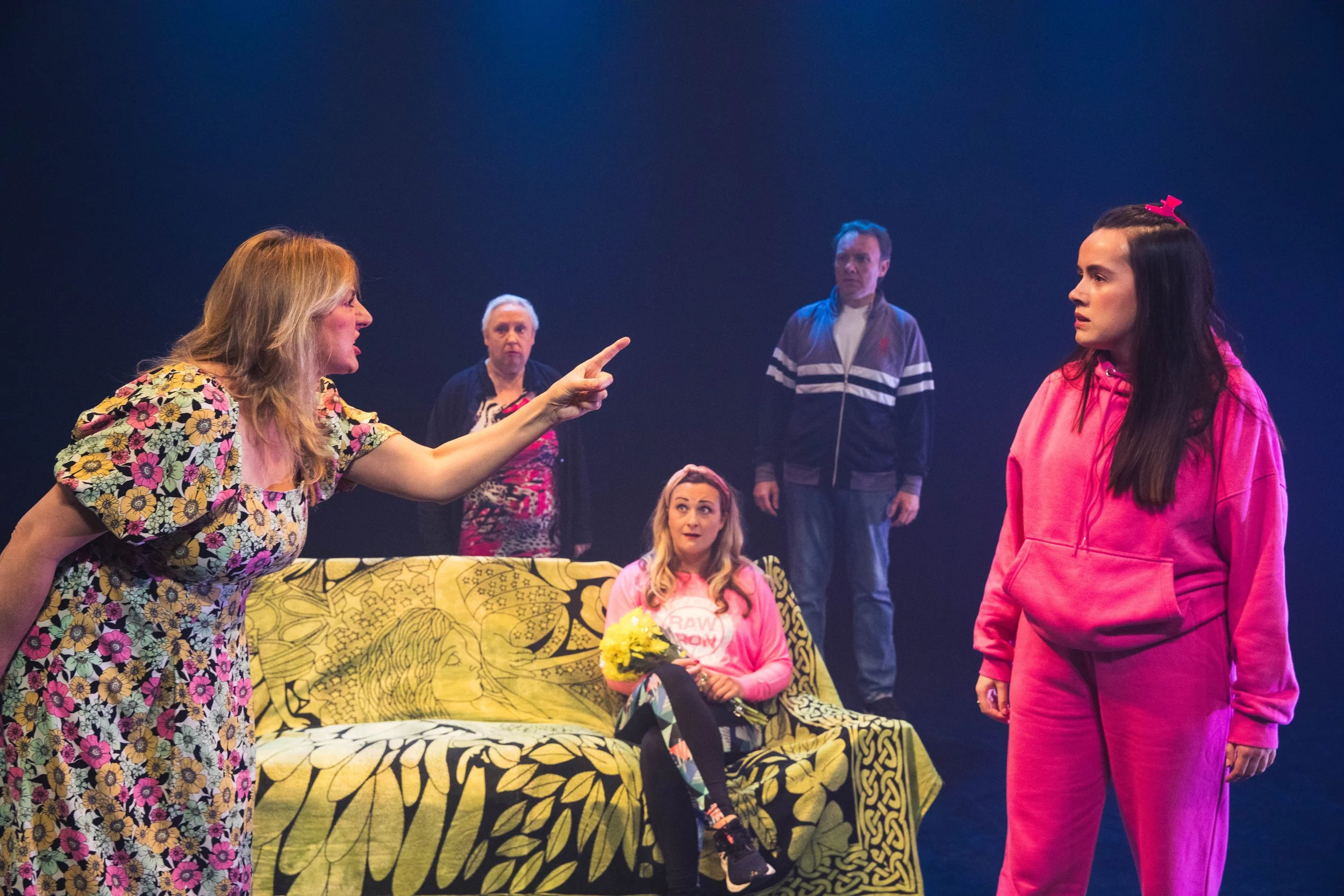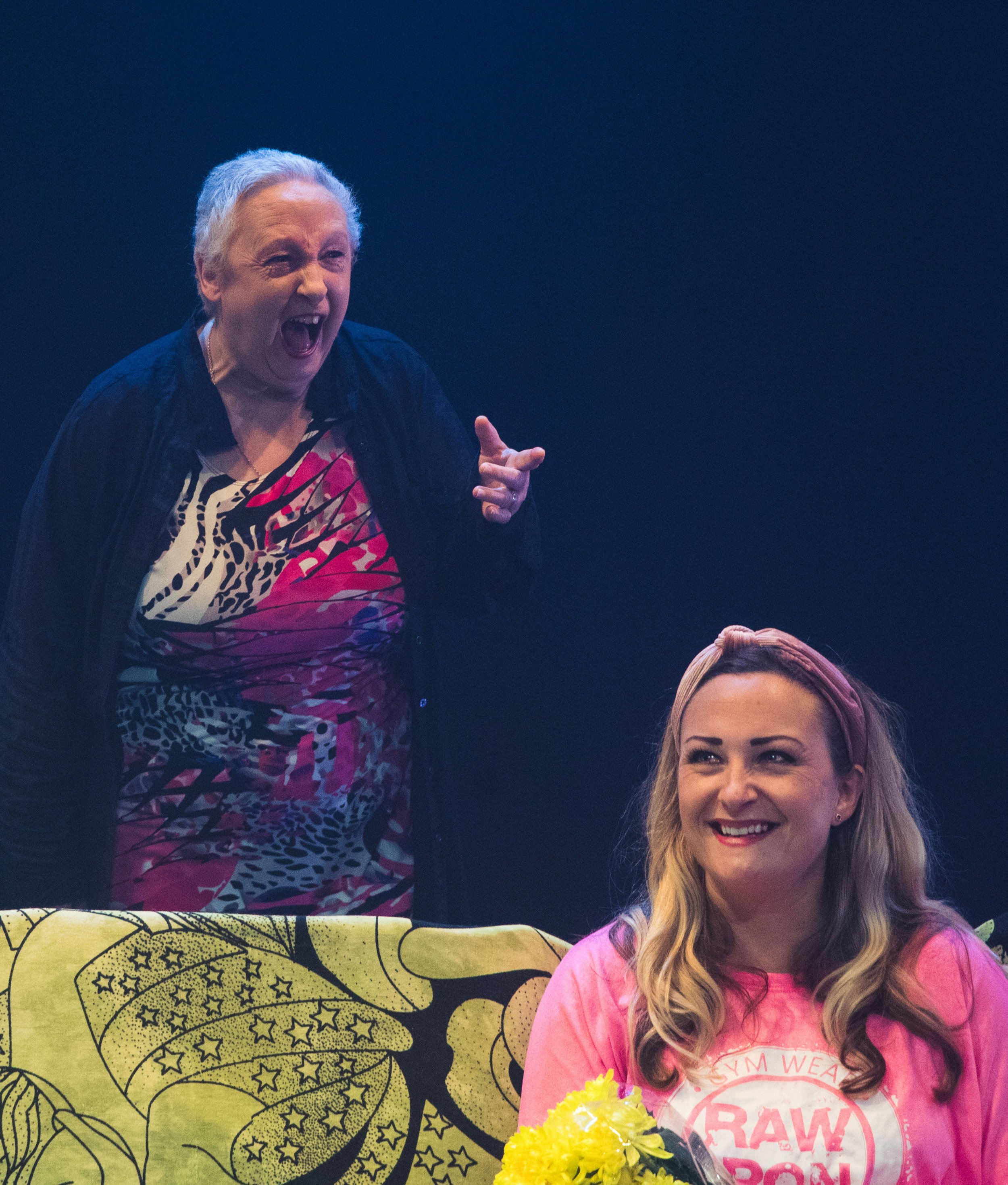Curtain Call: Dirty Old Town & Out The WoodWork
The Hope Street Theatre was presented with a double bill of "Dirty Old Town" by Mikyla Jane Durkan and "Out The Woodwork" by Lee Clotworthy. Mikyla's one-woman show blended dark comedy with her signature humor, while Lee's Scouse farce followed Pat's adventures after winning £30 million in the lottery. Both performances left the audience entertained. Our very Own Hannah Goldswain who was fortuante to see the show says:
“A very impressive one-woman show, Durkan brings dark comedy to her satire and plays on Scouse tropes and local references to chortling audiences.”
“A rollicking, wonderfully farcical comedy taking on the power of social media and money in relationships.” (read Here)
We had the chance to chat with writers, Mikyla Jane Durkan and Lee Clotworthy reflecting on the production and what they have achieved. in this special curtain call.
How was the show and overall experience?
Lee: The show went really well, thank you. There were great positive receptions from audiences who truly immersed themselves in the action, resulting in quite a few audible gasps! Unfortunately, we faced technical issues on the first night, but the resilient actors adeptly overcame this, and the audience seemed unfazed. Subsequent nights approached perfection. The overall experience has been amazing and humbling, with positive feedback from audiences and critics alike. As a creative, I am always eager to learn and consider all points of view, which I will carry into future productions.
Mikyla: very positive and learned so much!!
Did the audience react the way you wanted them to?
Lee: The audience reacted amazingly—and more! They gasped at the right moments and fully embraced the farcical elements. There were moments of profound silence, a testament to the actors' great timing. The audience connected with the characters, especially the inclusion of scouse 'isms' by the actors. Laughter echoed through the nights, and standing ovations were a beautiful conclusion.
Mikyla: I really had no idea what to expect. The audience were so generous and supportive especially as at least half of them really didn’t know what to expect. The feedback and comments after the show were amazing. My favourite times were when the audience let their daft out, joined in, shouted out and made comments. Each night was very different. We had fabulous support from reviewers. The staff at Hope Street were great and a particular mention to Gareth who did our tech and Ruby my Stage Manager who both did indeed become part of my show!
What were some of the specific challenges and rewards with this production?
Lee: There weren’t many to be honest. The actors completely owned their characters and their energy and drive towards the production was infectious. The only challenge I faced was the tech run. We didn’t have too much time in the theatre and certain requests that were essential for the storyline had to be changed last minute due to limited resources. The amazing tech guy Gareth did his best and we got there after much deliberation and tweaking, including myself having to turn on some lights from under the seating area towards the end of the show. It was all worth it though because those lights really did help enhance the amazing reactions from audiences. The actors and myself did not miss one rehearsal and used every minute we had in the space. If we had time left over, we would go over scenes again and play a bit more. The rewards made the play ‘breathe’, making it seem over the top yet grounded.
Mikyla: Initially it was to be able to answer the question what is it? what is the evening going to look like? It felt like an unusual night because both shows although have the common ground of dark comedy but other than that are quite different in their execution and content. So, we had to consider marketing and how to get the essence of each show across but on one poster etc… In terms of production, it was great to share ideas and know that we were in it together. On a practical level it was great to be able to share costs. We both had quite different approaches to certain logistics of the project which I feel was a real benefit as we kind of dovetailed each other’s strengths and weaknesses quite organically which was both refreshing and surprising! It’s funny how you develop a trusting relationship and just get on with things – for example answering these questions we both have no idea what the other has written until they get published and that for me feels absolutely fine!
What could you improve on the show, if you had to?
Lee: I could make it longer. Most of the feedback said they would like to have had more of it. I think I could improve by fleshing out some of the characters and ‘up the ante’ even more with an extra character or two if it was to be a two-act show. What’s the future for The both shows after this, any plans? I would not take the Edinburgh Fringe off the table. I would love to make it into a two act play and see if it would work as a single show in a larger scale theatre. I’m not 100% sure what will happen yet but I am 100% sure that it will be performed again in the near future.
Mikyla: Everything evolves constantly because as a performer each show is very different so it naturally develops sometimes by design but more often than not quite organically. Edits, rewrites and incorporating new material. Improve the flow but still avoiding a predictable narrative - well any narrative as far as Marigold is concerned. [laughs]
What advice would you give to upcoming creatives who want to put on a show?
Lee: Plan a rehearsal schedule and allow for flexibility. Respect others have lives so set realistic targets with script learning, blocking, etc. The rehearsal room is a playground for actors. A safe place to explore and to be creative in a positive environment. Listen and work together and meet in the middle when it comes to making choices. Always have a plan with what you want to do and achieve in every rehearsal. Communication is paramount, along with fellow artists, venues, marketing, etc. Respect rehearsal spaces and try to reply to messages as soon as you can. It makes less work and stress for yourself in the long run. Leave your ego at the door yet be confident to convey what is needed in the process. Oh, and money certainly gives you more options, haha!
Mikyla:Just do it! Don’t underestimate the power of collaboration. Plan as far ahead as you. Ask people for support and help. Liverpool has a wonderful network of creatives and someone will want to help or get involved.
What have you learnt from the overall experience?
Lee: I have learnt that dedication, hard work and a fantastic group of talented people with the same outlook on theatre can make anything happen. I have learnt that life’s too short to worry about your art. If it fails, it fails. At least I wouldn’t have any regrets, any ‘what if’s’. I would rather do something for myself rather than sitting at home, twiddling my thumbs waiting for something to happen. I always say “Don’t dream, DO” because time waits for no person. I’ve also learnt that being a carer for my mother and doing this is a balancing act so planning and scheduling is paramount. This time around I have also limited myself to set working hours as I think work/personal boundaries are detrimental to stress levels and mental health. It’s always OK to ask for help too.
Mikyla: Being Marigold is something I have to do! Try to be more balanced in my own evaluation of my work – being kinder to myself as well as being critical. It’s okay not falling into a category. Trust that if you work hard and go for it -it will work out. Stay true and trust your instincts. Have some self-belief and enjoy the ride!
Answers was written by, mikyla and Lee
Edited By, Meg Kay




